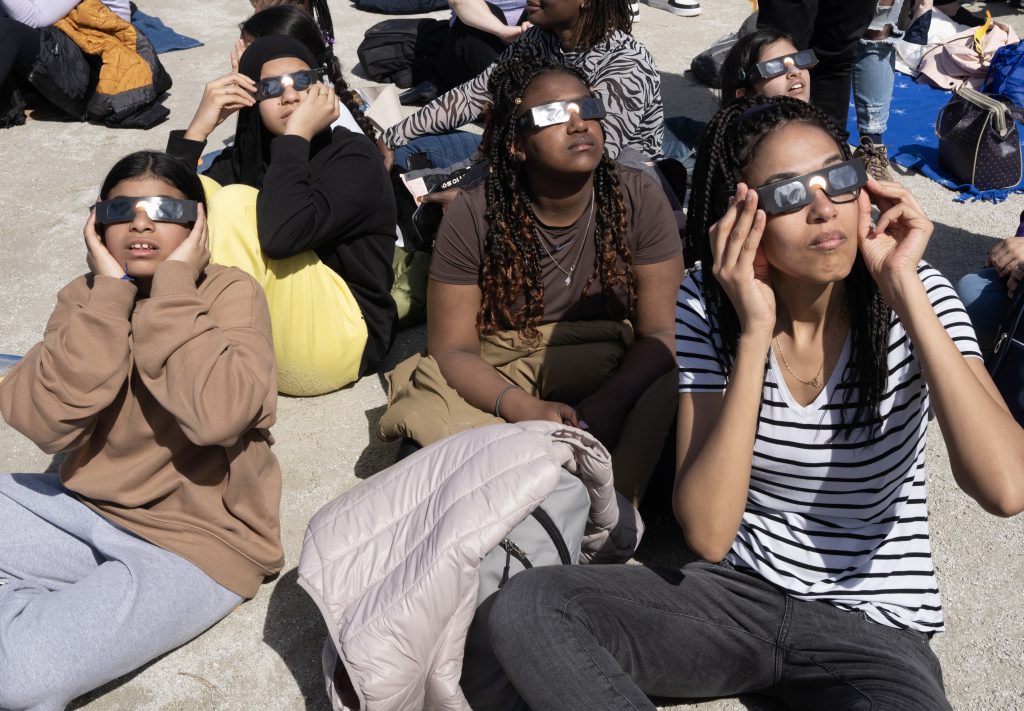Retina and cornea burn cases reported after solar eclipse in Quebec

Posted July 11, 2024 11:04 am.
Last Updated July 11, 2024 1:55 pm.
Three cases of retinal burns and three other cases of corneal burns have been confirmed following April’s total solar eclipse, according to the Association des médecins ophtalmologistes du Québec (AMOQ).
The three cases of retinal burns have retained “good vision,” said Dr. Cynthia Qian, AMOQ spokesperson and ophthalmologist specializing in retina at CHU Sainte-Justine and Maisonneuve-Rosemont Hospital.
“Their scores are close to normal during vision tests. However, more in-depth examinations show the passage of the sun’s rays on the retina. How this physical trace will evolve in the next six months to a year, time will really tell,” said Dr. Qian.
She clarified that these cases have not reached the point of blindness and very severe cases are rare.
To reach severe blindness, it takes sustained staring at the eclipse without adequate protection.
In total, the association recorded 18 consultations at eclipse-related clinics. The average age of these patients was 38, including children, and the most common symptoms were pain or discomfort in the eyes and blurred vision.
Dr. Qian pointed out that during the solar eclipse in the United States in 2017, nearly 100 people scattered across several states suffered eye damage.
Among the 18 patients in Quebec, 40 per cent admitted that they had not worn certified glasses to observe the phenomenon.
“Patients admitted that they had not worn glasses because they did not know that it was necessary for their safety or because they were no longer available. So, we see that there were still people who escaped the information. (…) I think that says that public efforts help, but if this event ever comes back, we must repeat the message again,” explained Dr. Qian.
The next total solar eclipse visible from Canada will occur on August 22, 2044. It will take place in western Canada and partially in Quebec.
According to AMOQ data, there are also three other suspected cases of corneal burns, but these have not been confirmed.
The association collected its data by conducting a survey of 350 ophthalmologists in Quebec. Around 20 of them confirmed having cases related to the eclipse by voluntarily responding to the survey between April 9 and 24.
—
The Canadian Press’ health content is funded through a partnership with the Canadian Medical Association. Editorial choices are solely the responsibility of The Canadian Press.
–This report by La Presse Canadienne was translated by CityNews








